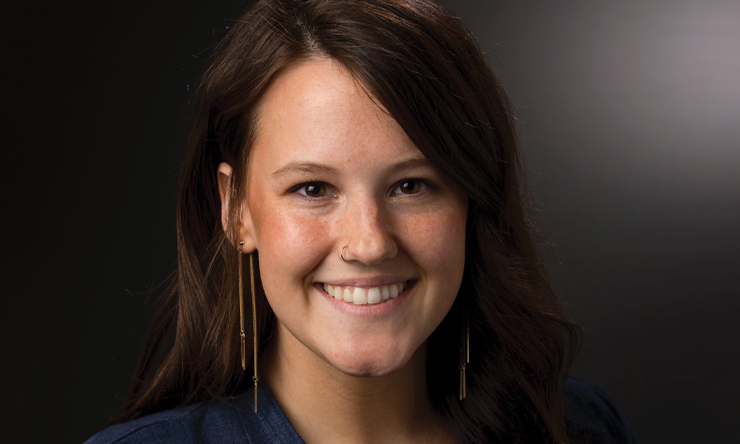All around Hou Xiaofeng's modest home in Shenyang, the "new China" is emerging.
Old buildings are being razed for giant high-rises. State-run companies are making way for private entrepreneurs. Western companies are arriving at a frenetic pace.
Six years ago, Hou left his job as a factory engineer and took a position in marketing as vice director of Shenyang Economic Technological Development Zone. It was a bold career change, but one better suited to his home city's rapidly evolving economy. So the 45-year-old was happy last year when he learned that a foreign university was planning to provide a western-style master of business administration degree program in Shenyang, the fourth most-populated city in China and the capital of the industrial northeast.
It made no difference to him that St. Ambrose University was from the United States, a longtime adversary of China. Nor that it was a Catholic institution. For Hou, what mattered was furthering his education.
"From my experience, I know it is very important for me to study some economic and management knowledge," Hou said via email. "So I take part in the MBA program in Shenyang. I am convinced what I have learned is more helpful for my future."
Although uncertain by America's standards, Hou's future and that of his homeland became a central question in the delicate discussion that took place at St. Ambrose last year between supporters and opponents of venturing into another country-and this one in particular.
Of all the places to establish a graduate program, why Red China?
A history of boundaries without balances
"There were some very legitimate concerns about taking a program there," said Richard Dienesch, dean of the College of Business at St. Ambrose. "This is an issue we thought about very seriously. The university wanted everyone's input and got it."
The vast majority of people at SAU embrace the concept of international education and were in favor of this venture for at least one cohort. They maintained it would help smooth the frosty relations between the two countries by providing a venue for educational cooperation. Currently, 60 to 70 institutions from the United States, Europe and Australia provide western-style MBA programs in China.
Others brought up concerns that the Chinese government might try to control the content and direction of the program to reflect the Communist Party's goals.
"In the past, the Chinese government had a lot of censorship and restraints on what business can and cannot do," said Bernie Hardiek, a St. Ambrose board member and retired president of Deere and Company's Worldwide Agriculture Equipment Division, which works extensively with China. "But I think that government has changed significantly in the past five or six years. They've loosened up their control."
There were others who felt taking the program to China was akin to giving intellectual aid and support to historic U.S. enemies such as Stalinist Russia or Nazi Germany. China's communist regime, they contended, had a checkered history replete with human rights violations dating back to the 1949 revolution. One had to look no further than the famous 1989 image of a young man standing in front of a column of tanks in Tiananmen Square when hundreds of university students were massacred during pro-democracy demonstrations.
Some professors said they would never teach in China. Others said the resources spent in creating the program were better used elsewhere. Even avid supporters of study abroad and international exchange programs were initially uneasy.
"I felt there could be conflicts on issues based on human rights," said the Rev. Msgr. Drake Shafer, a member of SAU's board and Vicar General of the Diocese of Davenport. "I wanted to make sure that people in China were aware of our identity as a Catholic institution and that our curriculum would include social justice teaching.
"Basically, I hoped that the Chinese knew what they were getting into and we knew what we were getting into," he said.
Integrate, not isolate
Ever since Marco Polo dubbed it a "sleeping giant," China has been a fabled land of mystery, intrigue and foreboding. In the 18th century, Napoleon reportedly gave the warning not to wake up China because "if you do, it will shake the world."
Many experts believe that China is on the cusp of that awakening. For more than two decades, the population of this country of 1.3 billion people has grown on average 9 percent a year, a rate unparalleled in world history. Moreover, it has joined the World Trade Organization and is hosting the 2008 Olympics-signals many perceive to mean the decades of relative isolation in world affairs may be over.
"China wants to be respected," said Merle Goldman, professor emerita of Chinese history at Boston University and author of a number of books including "China: A New History." "They want to be an established power. They want to be part of the prosperous powers of the world."
In order to achieve this status, it's vital that China becomes democratic, Goldman contends. "It doesn't have to be like our democracy," she said, "but it has to be a democracy. It's the only way China is going to be able to effectively function and hold itself together."
Otherwise, she warns, the worry is that newly rising powers have a potential for destruction, as happened in Japan and Germany in the 1930-40s.
Already, people in rural sections of China are holding village elections, Goldman said. Although these political reforms are limited since all candidates are nominated by the Communist Party, the people are starting to understand how the democratic process works.
Critical to that process is the emergence of China's middle class-people like Hou and his colleagues in St. Ambrose's MBA program. Traditionally, the middle class has not been an active force politically or economically, but Goldman maintains it is one that will prove paramount in moving China forward. That is why western-style MBA programs are so vital.
Yet bringing such knowledge to the Chinese is not a cut-and-dried process.
Change will come from within
"The Chinese estimate that their economy will require 1.4 million MBAs over the next 10 years," said Dienesch. "They feel their management professionals have strong technical skills but are lacking in marketing, interpersonal and organizational skills. These are among the hallmarks of a western MBA and that's why it has become so essential to the new emerging China."
Shenyang, the capital of Liaoning Province, has a population of 7.5 million-about the size of Chicago. The area's population, rapid economic growth and its governmental commitment to education all factored into St. Ambrose's decision to set up a trial MBA program there.
SAU professors who have already taught in Shenyang have encountered the challenges inherent to East meeting West.
"By our standards, they're smart. Mathematically, they were way up there," said associate professor Bill Lynn, who taught economics in Shenyang late last year. "They understand production well but they don't understand value. They're used to building things for a communist country and nobody cared about value. So they're very interested in the concept of value and serving the customer."
Western economic and managerial theories can be extremely difficult to understand for the Chinese students who have been nurtured in a system often diametrically opposed to the one used in the United States. Such concepts become more difficult to grasp when the nuances of the English language itself are still being learned.
"We enjoy our lessons very much, although we still have some difficulties in our study. Sometimes, we can't understand the special terms in economy," said Hou. Like most of his fellow students, he has expressed a desire to travel to the United States in December and attend the graduation ceremony at St. Ambrose.
The trip, though expensive, would be an important capstone to the rare educational opportunity Hou and his classmates have received. Moreover, it will provide them one more opportunity to be exposed to the people, ideas and values of St. Ambrose and the Western world.
"What we hope we're doing is training the next generation of leaders in China, and providing and establishing an enormous amount of goodwill between China and the United States," said Dienesch. "The more people in China who understand democracy and the free market, the easier it will be to change the situation there from within."
News
Share This Story



